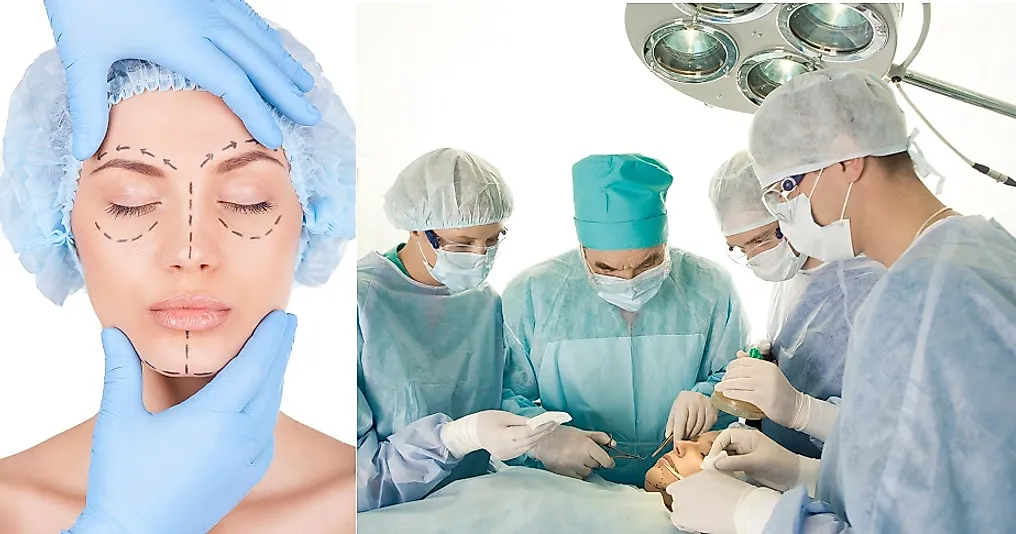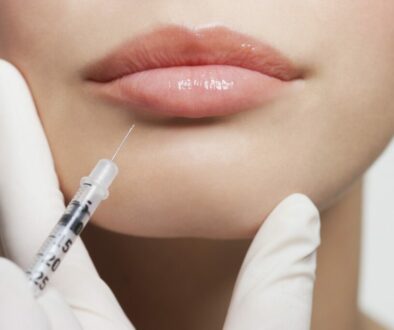Is Cosmetic Surgery Right for You? Understanding Your Options
Cosmetic surgery has gained immense popularity in recent years, with more and more people opting for various procedures to enhance their physical appearance. However, before diving into the world of cosmetic surgery, it is crucial to evaluate whether it is the right choice for you. This comprehensive article aims to provide you with an in-depth understanding of cosmetic surgery options and help you make an informed decision.
What is cosmetic surgery?
Cosmetic surgery, also known as aesthetic surgery, is a branch of plastic surgery that focuses on improving or enhancing a person’s appearance. It involves surgical procedures performed on different parts of the body, such as the face, breasts, or abdomen, with the aim of enhancing one’s physical features.
Factors to consider
Before contemplating cosmetic surgery, it is essential to consider various factors that contribute to the decision-making process. Ranging from personal motivations and expectations to potential risks and complications, understanding these factors will help you assess whether cosmetic surgery is the right path for you.

Understanding your options
Cosmetic surgery offers a wide range of options to address different concerns and desires. Whether you wish to reduce signs of aging, reshape your nose, or enhance your breasts, there is a procedure available to meet your specific needs. Understanding these options is crucial to determine which procedure aligns with your goals.
Common cosmetic surgery procedures
- Facelift: Rejuvenates the face by reducing wrinkles, tightening the skin, and improving overall facial contours.
- Breast augmentation: Enhances the size and shape of breasts using implants or fat grafting.
- Rhinoplasty: Reshapes the nose to achieve better balance and proportion with the rest of the face.
- Liposuction: Removes excess fat from different areas of the body, improving contours and body shape.
- Tummy tuck: Tightens the abdominal muscles and removes excess skin and fat from the abdomen.
- Botox injections: Temporarily reduce the appearance of fine lines and wrinkles by paralyzing facial muscles.
Risks and complications
While cosmetic surgery can yield transformative results, it is important to be aware of the potential risks and complications associated with these procedures. Understanding these risks can help you make an informed decision and ensure the safest possible experience. Here are some common risks and complications that you should consider:
- Infection: Any surgical procedure carries a risk of infection. Although steps are taken to minimize this risk, there is still a possibility that an infection may occur. It is crucial to follow post-operative care instructions and keep the surgical site clean to reduce the risk of infection.
- Scarring: All surgical procedures result in some degree of scarring. While cosmetic surgeons strive to minimize scarring by placing incisions in inconspicuous areas, the healing process and individual factors can affect the appearance of scars. It is important to have realistic expectations regarding scarring and discuss scar management options with your surgeon.
- Adverse Reactions to Anesthesia: Anesthesia is an integral part of cosmetic surgery, but it does carry some risks. Adverse reactions to anesthesia can occur, ranging from mild side effects such as nausea and dizziness to more severe complications. Your surgeon and anesthesiologist will thoroughly evaluate your medical history and monitor you during the procedure to minimize these risks.
- Hematoma and Seroma: Hematoma refers to the collection of blood outside of blood vessels, while seroma is the accumulation of fluid. These can occur in the surgical area and may require drainage. Your surgeon will take precautions to minimize the risk of hematoma or seroma formation, and proper post-operative care can also help prevent these complications.
- Unsatisfactory Results: While cosmetic surgery aims to improve your appearance, it is important to keep in mind that the outcome may not always meet your exact expectations. Factors such as individual healing, skin type, and the body’s response to surgery can influence the final results. Communicating your goals and discussing realistic expectations with your surgeon before the procedure can help minimize dissatisfaction.
- Nerve Damage: Some cosmetic procedures can carry the risk of nerve damage. Temporary or permanent numbness, tingling, or loss of sensation may occur in the surgical area. It is crucial to discuss these risks with your surgeon and understand the potential consequences.
- Bleeding and Hemorrhage: Excessive bleeding is a potential risk during and after surgery. Surgeons take precautions to minimize these risks, but in rare cases, bleeding may require further surgical intervention. Following all pre-operative instructions and informing your surgeon about any relevant medical conditions or medications can help reduce this risk.
- Poor Wound Healing: Factors such as smoking, certain medical conditions, and improper wound care can contribute to poor wound healing. In some cases, this may lead to wound breakdown, infection, or delayed healing. It is crucial to follow your surgeon’s post-operative instructions to promote optimal wound healing.
- Asymmetry: Achieving perfect symmetry is challenging in cosmetic surgery. Minor differences in appearance between the two sides of the body may occur post-operatively. While measures are taken to achieve balance and symmetry, it is important to have realistic expectations regarding the final results.
- Deep Vein Thrombosis and Pulmonary Embolism: Cosmetic surgery, especially procedures involving long periods of immobility, can increase the risk of developing deep vein thrombosis (DVT) and pulmonary embolism (PE). To minimize these risks, your surgeon may recommend measures such as compression stockings, early ambulation, or anticoagulant medications.
Preparing for cosmetic surgery
Proper preparation before undergoing cosmetic surgery is essential to ensure a successful outcome and minimize potential complications. This involves obtaining a comprehensive medical evaluation, discussing your expectations with your surgeon, and following pre-operative instructions diligently.
Recovery and aftercare
The recovery period following cosmetic surgery varies depending on the procedure. It is crucial to follow your surgeon’s post-operative instructions for optimal healing and results. This may include taking prescribed medications, wearing compression garments, and attending follow-up appointments. Being prepared for the recovery process will help you navigate this phase smoothly.

Emotional considerations
Undergoing cosmetic surgery can have a significant emotional impact. It is important to carefully evaluate your motivations and expectations, ensuring they are realistic and grounded in personal satisfaction rather than external influences. Additionally, discussing your feelings and concerns with your surgeon or a mental health professional can provide valuable support throughout the process.
Alternatives to cosmetic surgery
Cosmetic surgery is not the only option for those seeking physical enhancement. Non-surgical procedures, such as injectable fillers, laser treatments, and chemical peels, offer viable alternatives with minimal invasiveness and downtime. It is crucial to explore these alternatives and weigh the pros and cons before making a decision.
Consulting with a cosmetic surgeon
Before proceeding with any cosmetic surgery, it is crucial to consult with a qualified and reputable cosmetic surgeon. A thorough consultation will allow you to discuss your goals, understand the potential outcomes, and address any concerns or questions you may have. Be sure to ask about the surgeon’s credentials, and experience, and view before-and-after photos to gauge their expertise.
FAQs
How long is the recovery after cosmetic surgery?
The recovery period varies depending on the procedure. On average, it can range from a few days to several weeks.
Will I have scars after cosmetic surgery?
Scarring is a common concern, but advancements in surgical techniques have minimized the appearance of scars. Your surgeon will discuss scar management options with you.
Are the results of cosmetic surgery permanent?
While cosmetic surgery can provide long-lasting results, the aging process and external factors can influence the outcomes over time.
Is cosmetic surgery covered by insurance?
In most cases, cosmetic surgery is considered elective and not covered by insurance. However, certain procedures may be covered in specific circumstances, such as breast reconstruction after mastectomy.
How do I find a reputable cosmetic surgeon?
It is essential to research and choose a board-certified plastic surgeon with extensive experience in the specific procedure you are considering. Asking for recommendations, reading reviews, and checking credentials are vital steps.
Conclusion
Cosmetic surgery offers a multitude of options for individuals seeking to enhance their physical appearance. However, careful consideration of personal motivations, understanding available procedures, and knowledge of potential risks are crucial before making a decision. By understanding your options and consulting with a qualified cosmetic surgeon, you can make an informed choice that aligns with your goals and expectations. Remember, cosmetic surgery is a personal journey, and the decision should ultimately be based on what feels right for you.
Also Read:
The Ultimate Guide to Glowing Skin: Tips and Tricks



